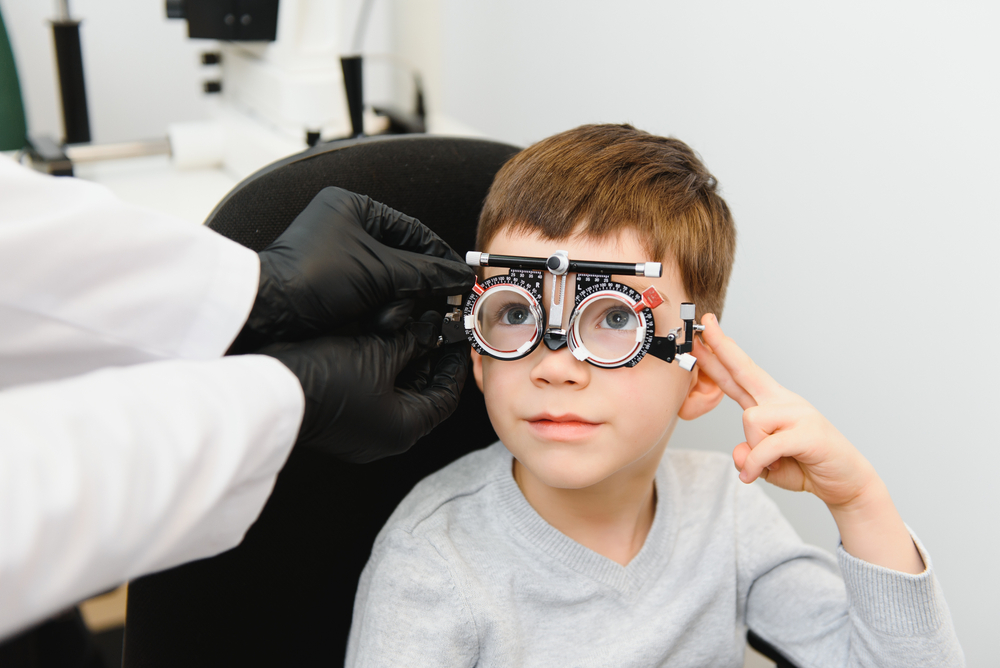
A Parent's Guide to Children's Comprehensive Eye Exams
As a parent, ensuring your child's health is always a top priority. While regular doctor visits and dental checkups may already be on your radar, one area that often gets overlooked is their vision health. Comprehensive eye exams are crucial for a child’s overall development, as vision plays a pivotal role in learning, social interaction, and physical activities.
Why Are Comprehensive Eye Exams Essential for Children?
A child’s vision develops rapidly in their early years, and any undetected issues can significantly impact their ability to learn and grow. Conditions like nearsightedness, farsightedness, and astigmatism can often go unnoticed, especially if your child doesn’t know what clear vision feels like.
Approximately 80% of learning in school involves visual tasks such as reading, writing, and using digital devices. Poor vision can hinder academic performance and confidence. Additionally, increased screen time can lead to issues like digital eye strain and fatigue. Regular checkups help identify these challenges early.
When Should Your Child Have Their First Eye Exam?
The American Optometric Association (AOA) recommends the following schedule for children’s eye exams:
• First Exam: At 6 months old
• Second Exam: At age 3
• Before School Begins: Around age 5 or 6
• Routine Exams: Annually thereafter, unless otherwise recommended by your optometrist.
What Happens During a Comprehensive Eye Exam?
Many parents worry that their child might feel anxious or restless during an eye exam. However, the process is designed to be comfortable, non-invasive, and even fun! Here’s what to expect:
• Visual Acuity Testing: This involves reading letters or identifying shapes on a chart to assess how clearly your child can see at various distances.
• Refraction Testing: The optometrist determines if your child needs prescription lenses and evaluates their ability to focus.
• Eye Alignment and Movement: Tests ensure the eyes are working together properly and not showing signs of conditions like strabismus (crossed eyes) or amblyopia (lazy eye).
• Eye Health Evaluation: Using gentle, specialized tools, the doctor checks the overall health of your child’s eyes, including their retina and optic nerve.
How to Prepare Your Child for an Eye Exam
To prepare your child for an eye exam, use simple and reassuring language to explain what will happen, such as saying, "The doctor will check how well your eyes see and make sure they are healthy."
If your child feels nervous, bringing a favorite toy or book can help them feel more comfortable. Schedule the appointment at a time when your child is well-rested and alert, like in the morning or after a nap, to ensure the experience is as smooth as possible.
Signs Your Child Might Need an Eye Exam Sooner
While routine exams are important, certain signs may indicate a need for an earlier appointment:
• Squinting or tilting their head to see better
• Frequent headaches or rubbing their eyes
• Holding books or screens very close to their face
• Complaints of blurred or double vision
• Difficulty focusing on schoolwork or reluctance to read
Make Eye Exams a Routine Part of Your Child’s Care
At Westchester Eyes, we’re committed to providing thorough and compassionate care for children of all ages. Our friendly team is skilled in working with young patients, ensuring they feel comfortable throughout the exam. By making comprehensive eye exams a priority, you’re giving your child the gift of clear vision and setting them up for success in all areas of life.
Reach out to Westchester Eyes to schedule your child’s comprehensive eye exam and ensure their vision is ready for every adventure life brings.Visit our office in Pleasantville, New York, or call (914) 201-9900 to book an appointment today.








